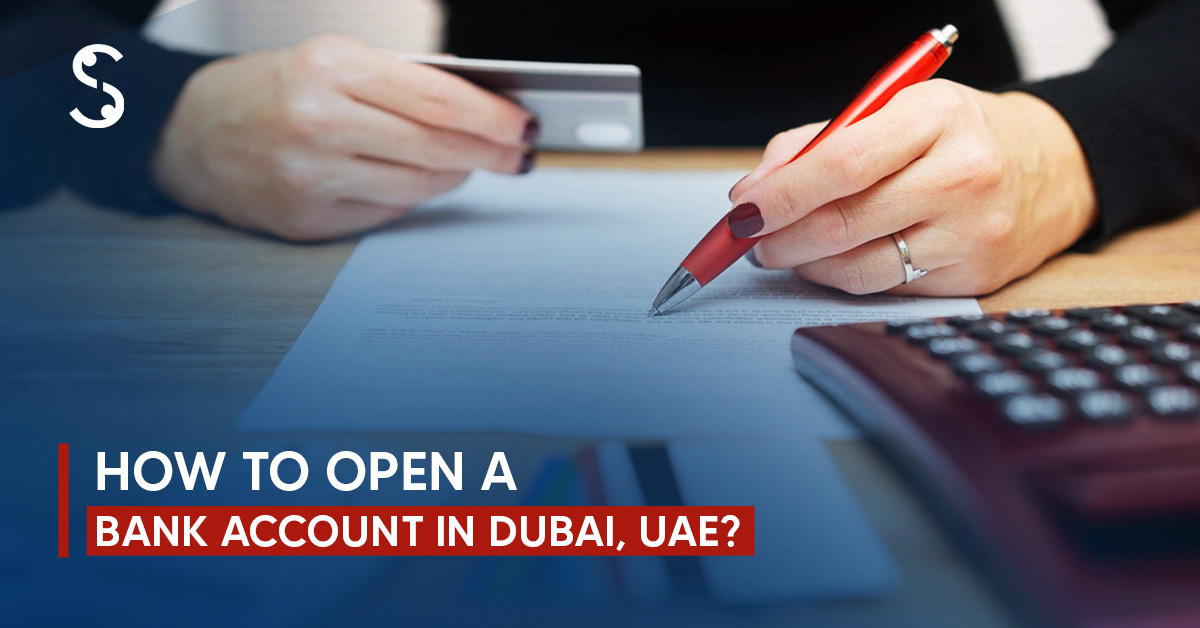How to Open a Bank Account in Dubai from UK
Opening a bank account in Dubai from the UK is easy and can help you manage your finances better. If you are new to Dubai or have lived here long, opening a bank account is quick. With just a few steps and some basic documents, you can open a bank account in Dubai from the UK and enjoy the benefits of banking. Here we will simplify everything, so you can easily understand the process of opening a bank account and the documents required. By the end, you’ll be ready to open your bank account and take advantage of Dubai’s banks’ services. Benefits of Opening a Bank Account in the UAE Opening a bank account in Dubai from the UK offers a range of benefits that help you manage your money easily and efficiently. With its modern and secure banking system, Dubai provides smooth international transactions. Moreover, it helps access great investment opportunities and top-notch banking technology. Here are some key advantages: 1. Easy Access to Your Money With a local bank account in Dubai, you can easily access your funds through ATMs, online banking, and mobile apps. It helps to keep control over your finances. 2. Secure Transactions Dubai’s banking sector is known for its high-security standards. It helps to protect your money and personal information from fraud and theft. 3. Multi-Currency Accounts Many banks offer multi-currency accounts, which allow you to hold and manage different currencies. This is particularly beneficial for handling international transactions. 4. Financial Services Dubai’s banks offer many services to help you grow your wealth, from loans and mortgages to investment opportunities and financial planning. 5. Easy International Transfers With a local bank account, international money transfers are quick and incur lower fees. It makes it easier to manage funds across borders. 5. Attractive Banking Products Dubai banks offer competitive interest rates on savings accounts and various types of credit cards. It also has special promotions that can benefit you financially. 6. Business Opportunities Having a local bank account is important for entrepreneurs when managing business transactions. It helps them receive payments and handle expenses in the UAE. Having a bank account in Dubai not only makes everyday transactions smoother. However, it also opens up opportunities for financial growth and security in a substantial economic hub. Types of Bank Accounts Available in Dubai In Dubai, you can choose from different types of bank accounts to suit your financial needs: 1. Savings Account Savings accounts are best for those looking to earn interest on their deposits while keeping their money easily accessible. They offer a safe place to store funds and typically come with features like online banking and ATM access. 2. Current Account This account is best for everyday transactions and allows frequent deposits and withdrawals. It’s commonly used for managing day-to-day expenses. It may come with features like chequebooks and overdraft facilities. 3. Fixed Deposit Account Fixed deposit accounts are suitable for long-term savings and offer guaranteed returns. They are for those who want to earn a higher interest rate by locking their money away for a set period. 4. Corporate bank account A corporate bank account is used mainly by businesses to manage their financial transactions. It helps companies handle everyday expenses, receive payments, and manage the cash flow. 5. Offshore accounts Offshore accounts are bank accounts opened in a country different from where you reside. They offer benefits like asset protection, tax advantages, and privacy. 6. Salary account A salary account is a bank account designed to receive monthly salary payments. It often offers benefits like lower minimum balance requirements and easy access to funds. Types of Prominent Banks in Dubai for UK Entrepreneur There are many different prominent banks in Dubai, and the most popular banks are listed below: Emirates NBD HSBC Dubai Standard Chartered Dubai Mashreq Bank Dubai Islamic Bank Abu Dhabi Commercial Bank (ADCB) How to Open a Bank Account in Dubai from the UK? You must obtain a residency visa to open a bank account in Dubai from the UK. For business owners, whether you choose a mainland or free zone company formation, you must get a trade license. UK investors are required to get one while opening a bank account in Dubai, below are the steps to open a bank. 1. Choose a bank in Dubai Proper research is required before choosing a bank in Dubai to open a bank account. You need to see the different banks that will provide you with various benefits for your business. Then you can choose a proper bank to open an account. While doing adequate research, key considerations can be: Minimum balance requirements Account features Online banking options Fees 2. Select a bank account type You need to choose a bank account to meet your business needs. You can choose between a personal, offshore, or business account. Personal Account: This account can be used as your account in Dubai. It will help you manage your money and investments in the Emirates. Offshore Account: This account is ideal for those seeking asset protection and diversification through foreign investments. Business Account: This account is suitable for entrepreneurs and investors in the country. 3. Collect all important Documents To open a bank account in Dubai, you should collect all the necessary documents to open the account. Keep these documents ready, which are mentioned below: Documentation for your company Shareholders Signatories Proof of address 4. Visit Dubai Once you’ve chosen the bank account type and gathered the required documents, you must visit Dubai to complete the opening process. 5. Bank’s application form Complete the bank’s account opening application form by providing accurate and detailed information about your business and its owners. Include essential details such as the business name, address, type of business, and registration number. Make sure to list all owners and their respective identification information, such as passports or ID cards, along with their contact details. 6. Regulatory Compliance and Verification To comply with anti-money laundering (AML) and










